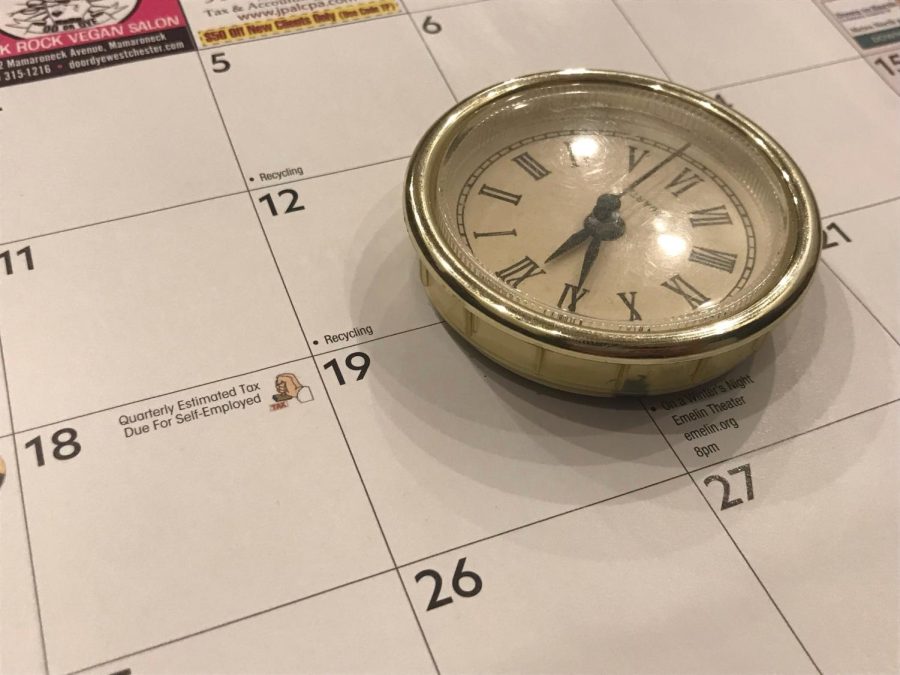Teenagers Activities’ Have Become Too Serious and Time Consuming
A clock ticks away as time seems to be in short supply for over programmed teenagers.
December 31, 2021
We can all relate to the fact that some of our friends are athletes, others are writers, others are technology lovers, and so on. Most students feel that they have one single talent that stands out above all else, one thing that they get out of bed for, and one thing that makes their lives complete. But as activities become increasingly time-consuming, teens aren’t able to experiment with new ones and find their passion.
If teens are focused on one activity, they’ll never have time to find other passions they have and they won’t be able to learn what is best for them through trial and error. For example, if you grow up loving soccer and play varsity or club soccer when you reach high school, you might never get a chance to reflect and realize that coding was something you really enjoyed. Maybe you didn’t get to foster close relationships with friends because you were too involved in your sport– eyes always on the prize. We need to realize that a prize doesn’t always look like a gleaming trophy or award. A prize can be discovering a different passion or making new friends.
Teens suffer the consequences of these time consuming activities. Marissa Lazarus (‘22), wasn’t able to participate in the school musical, Chicago, because she wanted to be on the ski team. When asked if she wanted to do both, she replied, “If it was less time-consuming, I would definitely do both.” She also knows people who have similarly had to stop activities because of the time commitment, and knows others who have taken on too much and haven’t had time to do anything else. Annika Lee (‘25), also spoke on the importance of variety in teen’s activities, stating “You need a wide range of activities to figure out your passion in life.”
Additionally, spending too much time playing one single sport can result in overuse injuries. Michael Sokolove, a writer for the New York Times, spoke about this in his article, The Uneven Playing Field. “They wear down the same muscle groups…by playing constantly, they multiply their risks and simply give themselves too many opportunities to get hurt,” he writes. In short, when you play the same sport most days of the week and most seasons, you put yourself at risk for dangerous injuries ranging from shin splints and runner’s knee all the way to stress fractures and possibly even broken bones. Furthermore, if you can’t ward off these injuries, that means less playing time. A single-sport player could help this by simply switching up what they do seasonally, like skiing in the winter and swimming in the summer.
As the winter season of sports and clubs continues, it’s a good time to think about switching up your schedule, including taking a break from some activities and adding in new ones. Do you really want to look back ten years from now and wish you had tried something else? Or would you rather look back on this time and feel confident that you experimented with a variety of things? The choice is yours.







